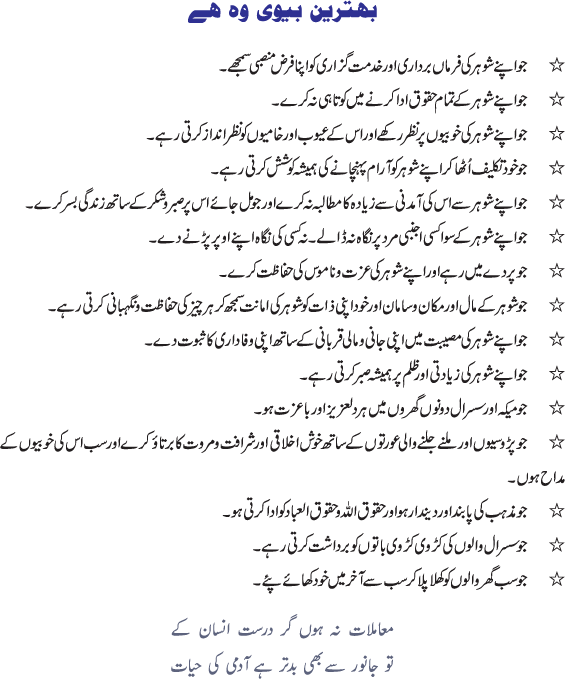All human societies uphold certain values and try to promote them. These include truthfulness, honesty, sincerity, caring for others, courage, patience in adversity, forbearance, pursuit of knowledge, etc. Parents try to instill in their children the importance of developing such qualities and maintaining such values. Teachers endeavor to show their pupils that even when any of these qualities may land a person in a bit of trouble, the end result of holding on to them is always better. Yet people normally have some of these qualities and remain lacking in others. A person may be honest and truthful, but may lack patience. Another may acquire broad knowledge through diligent learning but remains unable to handle a family crisis. To hold on to all superior values all the time is very rare, and to ensure that these are upheld by everyone in one’s household is a very difficult task. The home of Prophet Muhammad (peace be upon him), however, provided a unique example of holding on to every superior value and reflected a standard of moral characteristics that is second to none in all human history.
When we look at life in the Prophet’s home, we find that it was a life of poverty in every respect: barely enough food to eat, small and basic housing, little furniture and a clear lack of comfort. The Prophet married several women, and his marriages were for social, political and legislative reasons. When we read that each one of his wives had her own home, we tend to imagine that the Prophet had several houses competing to give him a comfortable living. That is totally wrong. Each of his wives had a single room, adjacent to the mosque. Each was no better than a small hut, built of mud bricks or uneven stones, with a low ceiling that a tall man can reach by merely lifting his hand. Such simple housing was coupled with equally simple furniture. Often there was nothing to sit on except a rough rug or a straw mat. Once Umar visited the Prophet and looked around. He expressed his sorrow that the Prophet’s home had no facilities other than the bare essentials. He remarked that the emperors of Byzantium and Persia had so much comfort while the Prophet lived under such conditions. The Prophet told him that such worldly comfort is transitory and he would rather have nothing of it.




